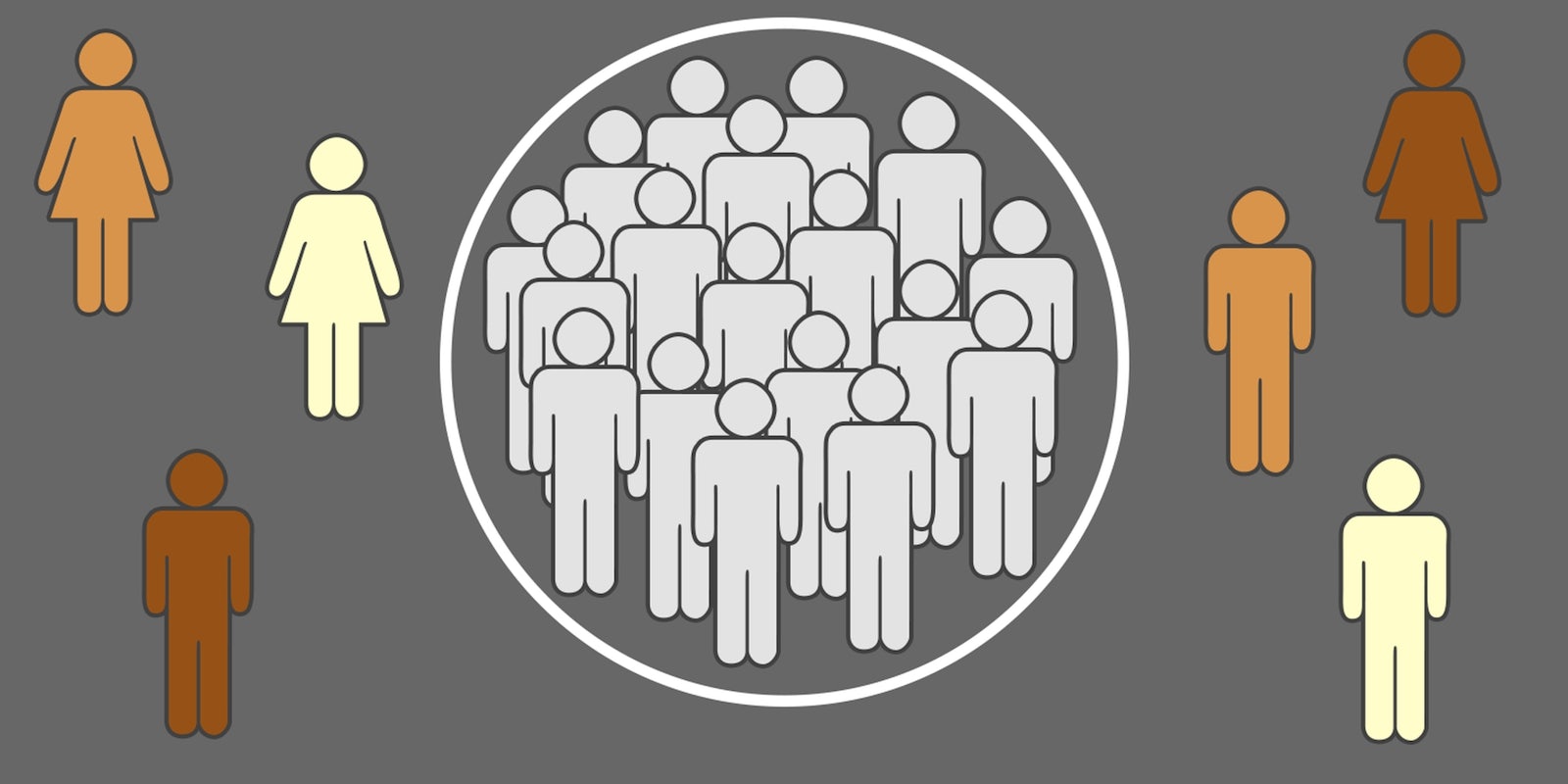The tech industry is in the midst of another troublesome bubble, but this time it has little to do with monetary excess. For years, technology companies have brought us devices and products that, in many cases, improved our lives. What has gone unfixed is the culture, however, and it seems we may have finally reached the breaking point. The rampant sexism and sexual harassment, the lack of diversity and cultural awareness, and the severe lack of respect for the public (who, for instance, may not want to be experimented on by a social network) continue to propagate the industry, nearly unchecked.
This has been addressed numerous times before—but it all seems to goes in one startup’s ear and out the other’s. Half-hearted attempts to solve diversity and sexism issues have been touted by companies for years, but there’s been no real change. The tech industry prides itself as a self-proclaimed meritocracy, but in truth, most of this meritocratic society only lets in those who “fit with the culture.”
The reality is Apple, the world’s biggest technology company, recently hired its first high-ranking female executive in 24 years–Angela Ahrendts–who turned around Burberry after taking over as CEO in 2006. Twitter didn’t add a female board member until it was pressured by critics; Facebook didn’t add COO Sheryl Sandberg to its board of directors until 2012, four years after she took the job and turned Facebook into a viable business.
It doesn’t end with discrimination against women. Most tech companies don’t even want to release their employment statistics concerning people of color. CNN Money conducted a nearly two-year-long investigation, probing 20 tech companies about their diversity. Out of the 20 companies—which included the 10 largest tech companies including Apple, Google, Microsoft, and IBM—only three (Dell, Intel, and Ingram Micro) complied with the request. CNN Money filed a Freedom of Information Act request to get the information, but only received demographic data from two other companies, Cisco and eBay. Apple, Google, Microsoft, IBM, and HP fought the Freedom of Information Act request on the grounds that it would cause “competitive harm.”
Therein lies the problem. If these companies—multi-billion dollar corporations—believe that releasing statistics on gender and race diversity would cause competitive harm, they are conducting a disservice without intending to change. Google finally relented in May, publishing its demographics. LinkedIn, Yahoo, and Facebook promptly followed suit.
What the numbers from these nine companies show is a severe lack of people of color, and misleading information on gender diversity. Statistics for the five companies uncovered by CNN Money—Cisco, eBay, Dell, Ingram Micro, and Intel—show on average only 4.2 percent of tech employees are black, and 7.3 percent are hispanic. Those numbers are actually high when compared to the other statistics recently released. Black and hispanic tech workers make up 3 percent of Google, 4 percent of Yahoo, Facebook, and LinkedIn.
The “tech” employee distinction is important. Companies will tout their gender diversity every time you ask, but when it is broken down by position, the numbers aren’t what they appear. For “non-tech” positions, the male-to-female ratio is nearly one to one in all nine companies. For “tech” employees, those numbers plummet. Numbers from the five companies in the CNN Money investigation show female “tech” workers make up 29 percent of the workforce on average in those companies. At Google and LinkedIn, that number is 17 percent. At Yahoo and Facebook, it is 15 percent.
The tech industry loves to have an open dialogue about its issues, and talk about how its goal is to create an environment where everyone can “thrive,” but all of the rhetoric has been just that. Technology has gone from a luxury to a necessity in the last decade. It is rapidly permeating every facet of our lives, but the people who create these technologies don’t equally represent everyone.
We wonder why the tech industry has a persisting, unimproving, issue with sexism and sexual harassment, yet we still ask why Facebook would think it’s no big deal to run a psychological test on 700,000 users unbeknownst to them, some of whom may have been children under the age of 18.
The tech industry exists in a culture bubble, a select few trying to create the tools of the future for billions without those billions being properly represented. When Beats founder and former music executive Jimmy Iovine said “the guys in Silicon Valley seem a little overconfident,” it was an understatement. The tech industry is still too white, too male, and if you aren’t a “culture fit” it’s even harder to get in.
There has been plenty of time to discuss how the tech industry can be more inclusive and promote diversity. The conversation has gone on long enough. Actions need to speak. The tech industry isn’t niche anymore—this is as mainstream as it gets. This is an industry that will define the next 50 years of how people interact with each other and will create the products we will spend our money on, and for it to be represented by so few is an utter disgrace.
The time for action is not after we’re subjected to another panel on women in tech filled with men, or another startup is tied to ethnic slurs. The time for action is now.
Illustration by Jason Reed


